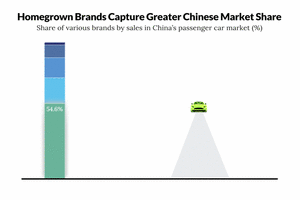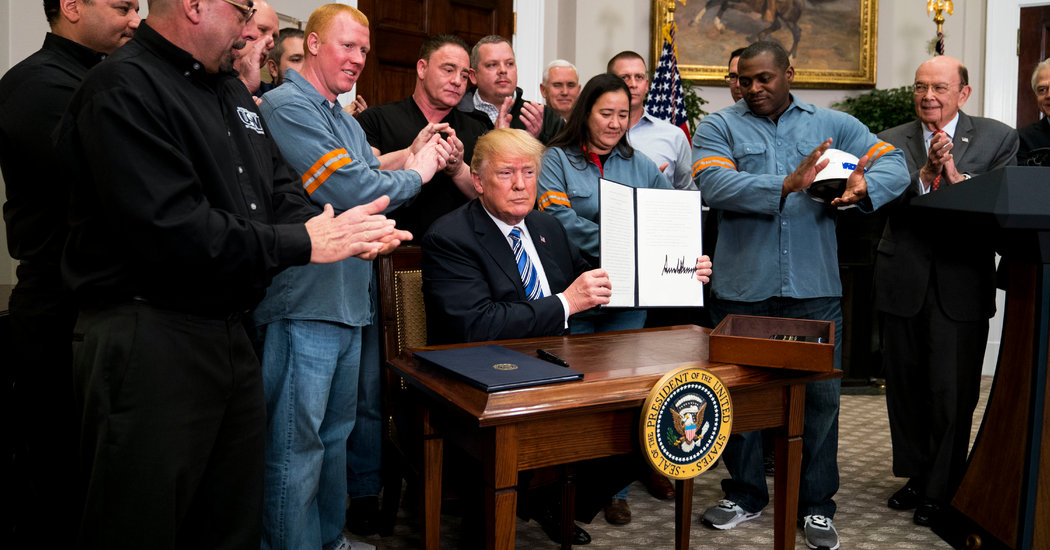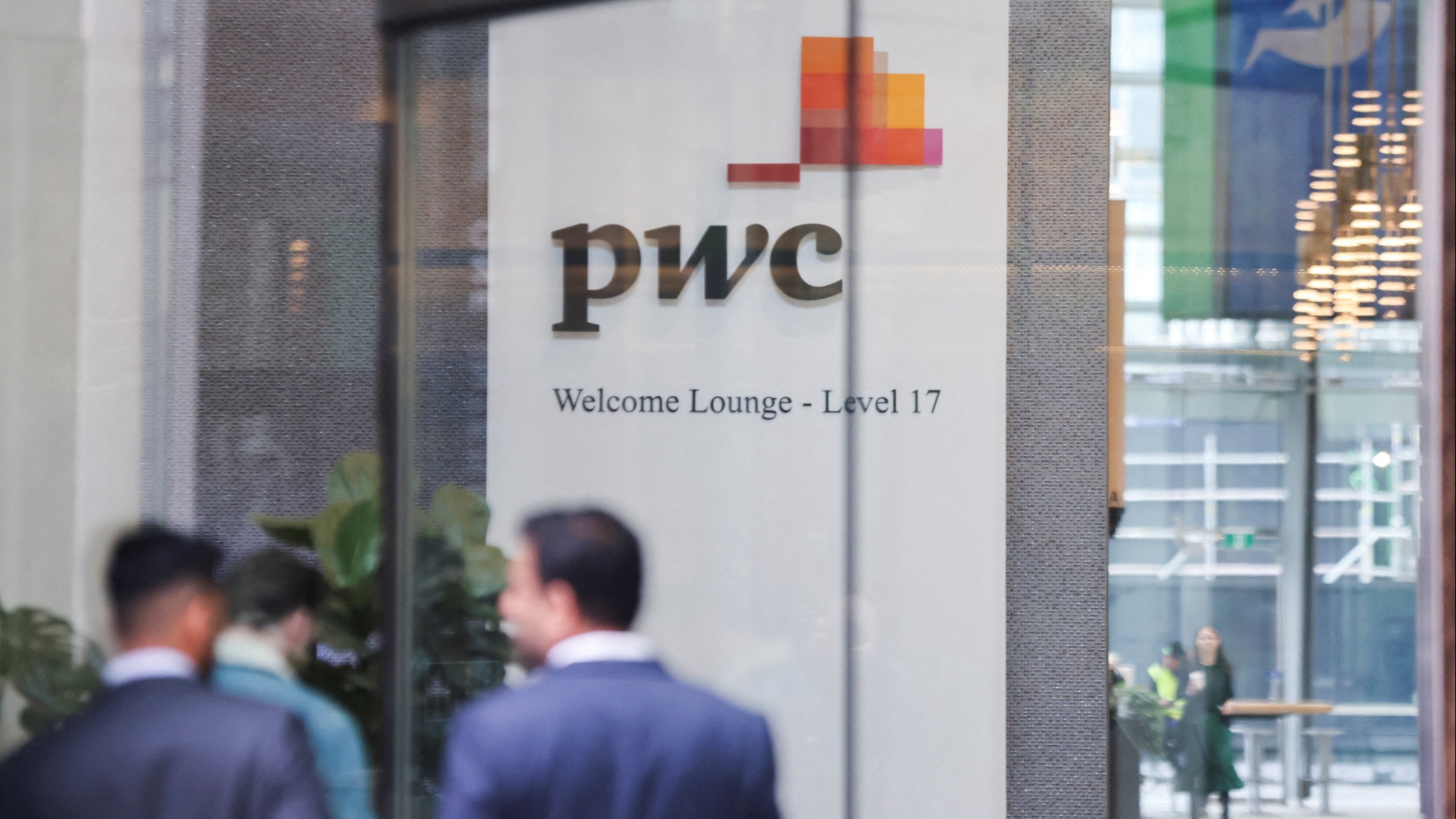Are BMW And Porsche Losing Ground In China? A Deeper Look At The Market

Table of Contents
Rising Competition from Domestic and Other International Brands
The Chinese luxury car market is no longer a playground for just established international players. Domestic brands like Nio, XPeng, and Li Auto are rapidly gaining traction, leveraging technological advancements and a deep understanding of the local consumer preferences. Simultaneously, other international competitors such as Audi, Mercedes-Benz, and Tesla are aggressively vying for market share, creating a highly competitive landscape.
- Market share comparisons: While precise figures fluctuate, reports indicate a gradual erosion of BMW and Porsche's combined market share compared to the rapid growth of domestic and other international brands.
- Specific models and performance: While certain BMW and Porsche models continue to perform well, others face stiffer competition from technologically advanced and often more competitively priced alternatives.
- Pricing strategies: The premium pricing strategy that has historically served BMW and Porsche well is facing pressure from competitors offering comparable features at lower price points.
- Technological advancements: Competitors are consistently pushing the boundaries of electric vehicle technology, autonomous driving features, and in-car entertainment, creating a technological arms race that demands constant innovation from BMW and Porsche.
Shifting Consumer Preferences in the Chinese Market
Chinese luxury car buyers are evolving, demanding more than just a prestigious badge. Their preferences are shifting towards:
-
Electric Vehicles (EVs): The demand for EVs is surging in China, a trend particularly pronounced in the luxury segment. Consumers are increasingly drawn to the environmental benefits, technological sophistication, and government incentives associated with electric vehicles.
-
Technological features and ADAS: Advanced driver-assistance systems (ADAS) and other cutting-edge technologies are becoming crucial purchasing factors. Chinese consumers expect seamless connectivity, intuitive interfaces, and advanced safety features.
-
Brand image and social status: While brand image remains important, its significance is evolving. Consumers are increasingly discerning, seeking brands that align with their personal values and reflect a sophisticated understanding of technology and sustainability.
-
Statistics on EV adoption: Data shows a significant rise in EV adoption within the Chinese luxury car segment, surpassing growth in traditional internal combustion engine (ICE) vehicles.
-
Consumer reviews and social media sentiment: Online reviews and social media discussions reveal a growing interest in domestic brands and EVs, highlighting the need for BMW and Porsche to enhance their digital presence and engage directly with consumers.
-
Marketing strategies: Competitors are employing targeted digital marketing strategies, leveraging social media and influencer marketing to effectively reach Chinese luxury car buyers.
Economic Factors and Geopolitical Influences
Macroeconomic conditions and geopolitical events significantly impact luxury car sales in China.
- Impact of GDP growth: Economic fluctuations directly influence consumer confidence and spending habits. Slowdowns in GDP growth can lead to reduced demand for luxury goods, including high-end vehicles.
- Government policies and regulations: Government regulations concerning emissions, fuel efficiency, and import tariffs can influence the profitability and market access of both domestic and international automotive brands.
- Supply chain disruptions: Global supply chain disruptions can lead to production delays, shortages, and increased prices, further impacting sales and profitability.
BMW and Porsche's Response Strategies
Recognizing the challenges, BMW and Porsche are actively implementing strategies to maintain their competitiveness:
-
Investment in EV technology: Both brands are heavily investing in electric vehicle technology and the development of new EV models specifically tailored for the Chinese market.
-
Adaptation of marketing and branding strategies: BMW and Porsche are adapting their marketing strategies to resonate better with Chinese consumer preferences, employing digital marketing techniques and engaging with local influencers.
-
Localized production and partnerships: Both companies are increasingly focusing on local production and strategic partnerships to enhance their understanding of the local market and reduce reliance on imports.
-
New models and technologies: BMW and Porsche are introducing new models and technologies specifically designed to appeal to the Chinese market, often featuring advanced features and EV options.
-
Marketing campaigns and brand positioning: Their marketing campaigns are becoming more targeted and localized, focusing on messaging that resonates with Chinese consumers’ values and aspirations.
-
Investment in local manufacturing and R&D: Significant investments in local manufacturing facilities and R&D centers demonstrate a commitment to long-term success in the Chinese market.
Conclusion: The Future of BMW and Porsche in the Dynamic Chinese Market
The Chinese luxury car market presents significant challenges for established brands like BMW and Porsche. The rise of domestic competitors, shifting consumer preferences towards EVs and advanced technology, and macroeconomic influences are all creating a dynamic and competitive environment. Maintaining market share requires significant adaptation, innovation, and a deep understanding of the evolving Chinese consumer. While BMW and Porsche possess strong brand recognition and heritage, their future success hinges on their ability to effectively navigate these challenges and embrace the evolving dynamics of the market.
Stay informed about the evolving dynamics of the BMW and Porsche presence in the Chinese market by following [link to your website/blog] for further insights into the Chinese luxury car market.

Featured Posts
-
 The Trump Administration And Trade A Balancing Act Between Deals And Economic Stability
May 06, 2025
The Trump Administration And Trade A Balancing Act Between Deals And Economic Stability
May 06, 2025 -
 Aritzias Strategy For Navigating Trump Era Tariffs
May 06, 2025
Aritzias Strategy For Navigating Trump Era Tariffs
May 06, 2025 -
 Knicks Vs Celtics 2025 Nba Playoffs Where To Watch
May 06, 2025
Knicks Vs Celtics 2025 Nba Playoffs Where To Watch
May 06, 2025 -
 How Margin Pressure Is Affecting Westpac Wbc Profits
May 06, 2025
How Margin Pressure Is Affecting Westpac Wbc Profits
May 06, 2025 -
 Will The U S Force Google To Separate Its Advertising Empire
May 06, 2025
Will The U S Force Google To Separate Its Advertising Empire
May 06, 2025
Latest Posts
-
 Hollywood Walk Of Fame Mindy Kalings Chic Peplum Ensemble
May 06, 2025
Hollywood Walk Of Fame Mindy Kalings Chic Peplum Ensemble
May 06, 2025 -
 Mindy Kalings Hollywood Walk Of Fame Star A Peplum Celebration
May 06, 2025
Mindy Kalings Hollywood Walk Of Fame Star A Peplum Celebration
May 06, 2025 -
 Peplum Power Mindy Kalings Stylish Walk Of Fame Moment
May 06, 2025
Peplum Power Mindy Kalings Stylish Walk Of Fame Moment
May 06, 2025 -
 Mindy Kalings Dating History A Look At Her Past Relationships
May 06, 2025
Mindy Kalings Dating History A Look At Her Past Relationships
May 06, 2025 -
 Mindy Kalings Weight Loss Journey Before And After Photos
May 06, 2025
Mindy Kalings Weight Loss Journey Before And After Photos
May 06, 2025
